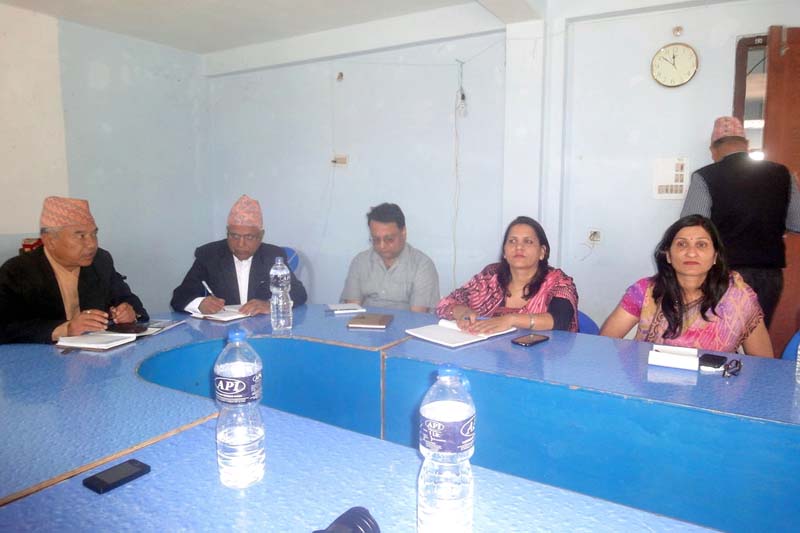TRC, a hostage to chairperson’s prolonged absence
Kathmandu, April 1
The Truth and Reconciliation Commission has virtually become a 'hostage' to the prolonged absence of its Chairman Surya Kiran Gurung.
Gurung, who went incommunicado for almost one-and-a-half months, has stayed away from work seeking the removal of his outspoken colleague Madhabi Bhatta — who he had earlier discharged from the responsibility of TRC spokesperson.
Gurung has not reported to work since February 12. He, however, showed up at the Social Justice and Human Rights Committee of Parliament on March 26 after he was summoned to clarify regarding his absence from work.
He is learnt to have approached top leaders of ruling parties — including Prime Minister Pushpa Kamal Dahal and Nepali Congress President Sher Bahadur Deuba — seeking support to oust Bhatta. As he didn't get assurances from them, he started staying away from office after 'informing' PM Dahal, sources claimed.
The PM's political adviser Chakrapani Khanal confirmed that Gurung had told the PM he wouldn’t join work until Bhatta was removed.
Khanal, however, said the PM did not instruct him to stay away from duty. "We are holding consultations on how to resolve the differences so as to create conducive work environment at the TRC," he added.
Gurung had approached top leaders of ruling parties seeking to oust Bhatta
Meanwhile, the Supreme Court issued a show-cause notice to defendants, including Gurung, regarding his long absence. Justice Bishowambhar Prasad Shrestha issued the show-cause on Thursday in response to a petition registered by conflict victims.
TRC's regular business has been affected since February 2, when Gurung left his office abruptly after a debate with Bhatta over extension of the TRC’s term.
TRC officials, however, said he was upset because the SC quashed a guideline pushed by him not to investigate some insurgency-era rights violation complaints.
Investigation of at least 58,052 complaints of human rights violation allegedly committed during the insurgency has been affected.
According to Section 9 (1) of the TRC Act, the chairman calls the meetings of the commission. Due to his continued absence, TRC held its meetings on March 22 and March 24. The meeting was presided over by senior-most TRC member Leela Udasi and other members — Bhatta, Sri Krishna Subedi and Manchala Jha — were present.
It was held after conflict victims gave a deadline to come up with a concrete work plan and begin probe into complaints, but no meeting has been held after that. Gurung wasn't available for comment despite this daily's repeated attempts.
In the House panel’s meeting on March 26, he had hinted about uneasy ties with Bhatta. He accused Bhatta of leaking information about the TRC to the media, a charge which he had levelled at Bhatta when he had removed her from the post of TRC spokesperson in February 2016.
Bhatta, on her part, questioned Gurung's 'morality' in not reporting to office despite the concerns of victims, the media, and the apex court. She also questioned the TRC chairman's integrity in seeking help from the PM — who is also an alleged perpetrator of insurgency-era rights violations — with regard to the internal matters of the transitional justice body. The TRC is supposed to remain above political influence, especially in relation to parties involved in the conflict.
The body is mandated to resolve all outstanding human rights violations during the Maoist insurgency from February 1996 to November 2006. Its initial two-year tenure expired on February 9 without any significant achievement. Its mandate was extended by one year on February 10.






